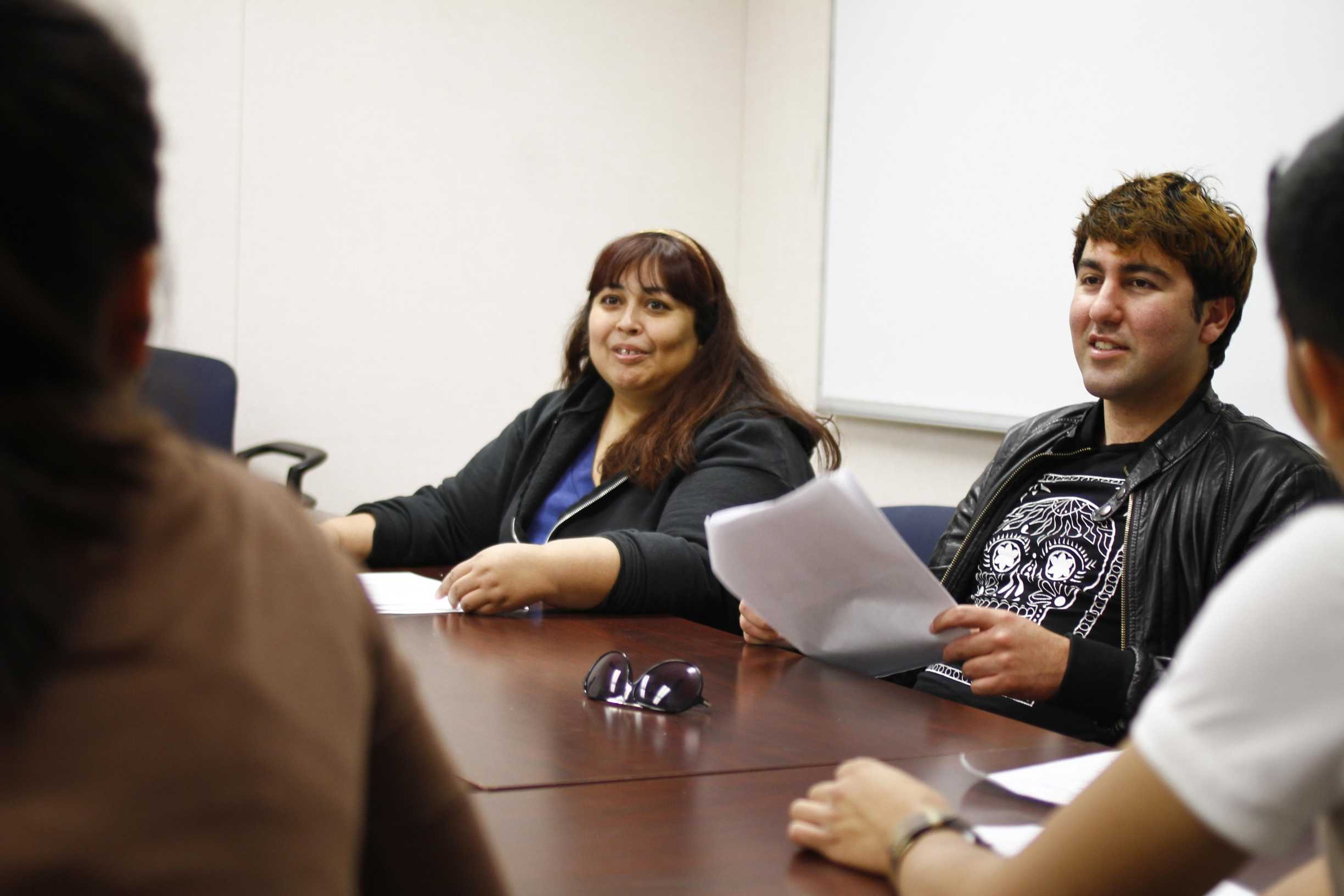By Itzel Farias / Assistant News Editor

A student leader (Diego Alvarez / Staff Photographer)
By Itzel Farias / Assistant News Editor
With the Associated Students of Riverside City College elections coming up this spring, students can anticipate the upcoming campaign period.
The first election that takes place is for student trustees.
Eligible candidates, who have the required GPA of 2.0 and are enrolled in at least six units per semester, can fill out the student trustee packet, that is then reviewed by Student Services.
Once it is approved, a mandatory meeting is held, where all information pertaining to running for election is given.
After a campaign period of two weeks, three open forums are held for each campus: RCC, Norco College and Moreno Valley College, where students can inform themselves on the views of the candidates.
Students can then vote on all three campuses and tally the votes, where the majority would win.
President, vice president and senate elections are held in the same way only that each campus holds its own private forum instead of three forums (one for each college).
“Our student government is like an actual government,” said Richard Gallon, senate pro-tempore.
The Associated Students of RCC consist of three main branches of government: the executive branch, the legislative branch and the judicial branch.
The executive branch is composed of the presidents, vice presidents, the district senate chair, treasurer and secretary; along with the Inter-Club Council, Board of Commissioners, the Multicultural Advisory Council, and Multicultural Advisory Council.
The Inter-Club Council supports and promotes communication and participation between clubs on campus.
Board of Commissioners provides events and activities for the student body.
The Multicultural Advisory Council promotes the communication and educational awareness of cultural differences at RCC.
Multicultural Advisory Council deals with marketing, graphic design and advertising.
“They (Inter-Club Council, Board of Commissioners, and Multicultural Advisory Council) are the ones that brain storm where they want the whole student government to go toward and that’s where most of our events come from . . . from the ICC, BOC and MCAC,” Gallon said. “They’re the big planners.”
The legislative branch is made up of members of the senate, with a maximum of 45 seats.
They vote on college legislation and approve budgets. The judicial branch consists of the associate justices.
The Supreme Court conducts student elections, holds student forums, and interprets the constitution.
“They deal with grievances that students may have, grievances that members of ASRCC have against other members that aren’t doing what they are supposed to do, along with open forums and informing the students,” Gallon said.
However, for the planning of events to happen (and just like an actual government), the Associated Students of RCC must manage its budget.
The Associated Students of RCC acquires its budget from the students who pay $10 student services fee for fall and spring semesters and the $2 fee for summer and winter terms.
The outcome always varies because students have the option to waiver their fee.
Once the budget is established, the money is then distributed to specific areas, such as clubs and athletics.
The 2011-2012 RCC budget came out to be $415,000, where $205,825 was distributed to athletics, $ 93,320 was distributed to organizations (such as dance and music), $30,375 was distributed to clubs (such as the International Club), and $85,480 was distributed to the Associated Students of RCC’s councils, etc.
Money that is left over is saved in the Associated Students of RCC’s reserve fund.
Money is then distributed further among each section.
For example, the amount of funding an individual club or organization gets will vary depending on whether it’s active.
Active clubs may receive more funding than those who are not as involved.
Not adding to the fact that more budget cuts mean less funding.
“Budget cuts affect everyone, so it’s very important that if they (the students) don’t want to do something (i.e. an event), they tell us because it’s their money,” Gallon said. “That’s why we need more students to advocate; to get involved and get informed on what’s going on.”
Trustee elections are scheduled for April 3 and 4 at the Martin Luther King Teaching / Learning Center steps.
More information on elections, times and dates can be found in the Student Activities Office.






